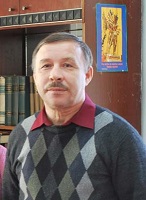Soviet diplomats and Comintern representatives in People’s Republic of Tuva in the 1920s
Keywords:
People’s Republic of Tuva (PRT); Soviet consulate; USSR’s envoy plenipotentiary in PRT; history of Tuva; Comintern in Tuva; consulates in TuvaAbstract
This is the first study of the role Soviet diplomats and representatives of the Communist International (Comintern) played in the Soviet-Tuvan relations during the first decade after the emergence of the young Tuvan state – People’s Republic of Tuva (1920s). From representing the interests of a small military mission, the Soviet diplomatic office in Tuva evolved into a full-scale embassy of the Soviet state. Its history clearly falls into two stages: from early 1920s to 1927 Soviet mission members largely abstained from interfering into PRT’s internal issues, but subsequently they started actively promoting the left wing of Tuvan People Revolutionary Party, which contributed to its accession to power.
The Soviet state began to act as PRT’s patron on the international arena. This policy of support and custody was in accordance with Article 2 of PRT’s constitution. Using documentary sources, this article traces the appointments and transfers of a number of Soviet diplomatic officers and consuls (F.G. Falsky (Falkovsky), I.A. Chichayev, F.F. Razumov, A.G. Starkov), as well as Comintern representatives (I.G. Safyanov, B. Tsivenzhapov, V. Borovikov, A.M. Amur-Sanan, S.A. Natsov, V. Machavariani, V.A. Bogdanov). In the duopoly of consuls and Comintern representatives, the former dominated at the earlier stages, but after the defeat of Chinese communists in 1927 the Soviet leaders thought that Socialist transformations in Mongolia in Tuva should be sped up.
The article makes use of archival sources from the State Archive of the Republic of Tuva, Russian State Archive of Socio-Political History (RGASPI), and the Research archive of Tuva Institute for Humanities and Applied Socioeconomic Studies.
References
Aranchyn, Yu. L. (1982) Istoricheskii put' tuvinskogo naroda k sotsializmu. Novosibirsk, Nauka. 430 p. (In Russ.).
Bakhov, A. S. (1966) Na zare sovetskoi diplomatii : Organy sovetskoi diplomatii v 1917–1922 gg. Moscow, Mezhdunarodnye otnosheniia. 175 p. (In Russ.).
Dokumenty vneshnei politiki SSSR (1957) : in 21 vols. Moscow, Politizdat. Vol. 1. (In Russ.).
Istoriia Tuvinskoi Narodnoi Respubliki v arkhivnykh dokumentakh. 1921–1944 gg. (2011). Novosibirsk, Sibirskoe knizhnoe izdatel'stvo. 312 p. (In Russ.).
Istoriia Tuvy (1964) : in 2 vols., ed. L. P. Potapov. Moscow, Nauka Publ. Vol. 2. (In Russ.).
Kaiskii, M. (1926) Uriankhaiskii vopros. Severnaia Aziia, no. 4, pp. 16–25. (In Russ.).
Machavariani, V. and Tret'iakov, S. (1930) V Tannu-Tuvu. Moscow, Leningrad, Molodaia gvardiia. (In Russ.).
Mollerov, N. M. (2013) O smene vlastnoi elity i politicheskogo kursa v kontse 1920-kh godov v sviazi s kitaiskimi i mongol'skimi sobytiiami. Vestnik Tuvinskogo gosudarstvennogo universiteta. Sotsial'nye i gumanitarnye nauki, issue 1, pp. 24–37. (In Russ.).
Ocherki istorii Tuvinskoi organizatsii KPSS (1975), ed. G. Ch. Shirshin. Kyzyl, Tuvinskoe knizhnoe izdatel'stvo. 405 p. (In Russ.).
Serdobov, N. A. (1985) Komintern i revoliutsionnaia Tuva (1921–1944). Kyzyl, Tuvinskoe knizhnoe izdatel'stvo. 238 p. (In Russ.).
Published
How to Cite
Issue
Section

Author(s) license holder(s) grant rights for their work to the journal (grantee of a license) under the simple non-exclusive open license in accordance with Art. 1286.1 «Open license for a research work, work of literature or fine arts», Civil Code of the Russian Federation.
New Research of Tuva publishes articles under the Creative Commons Attribution-NonCommercial license (CC BY-NC).
Since it is an open license, author(s) reserve the right to upload the article to their institutional repository, submit it to another journal (if it allows republications), or republish it on their own website (in full, or in part).
However, several conditions apply here:
a) The republished version must always contain the name(s) and affiliation(s) of the author(s), the original title and the hyperlink to the original version on the New Research of Tuva website;
b) It must be in open access, free of charge, and no category of readers must be in any way whatsoever advantaged over general readership.
c) should the contribution be submitted elsewhere by its author(s) without substantial modification (30% or more of original text unchanged), the body of the article should contain a disclaimer that the original version was published in New Research of Tuva (with a link to the respective page)
The CC-BY-NC is a non-revocable license which applies worldwide and lasts for the duration of the work’s copyright.





